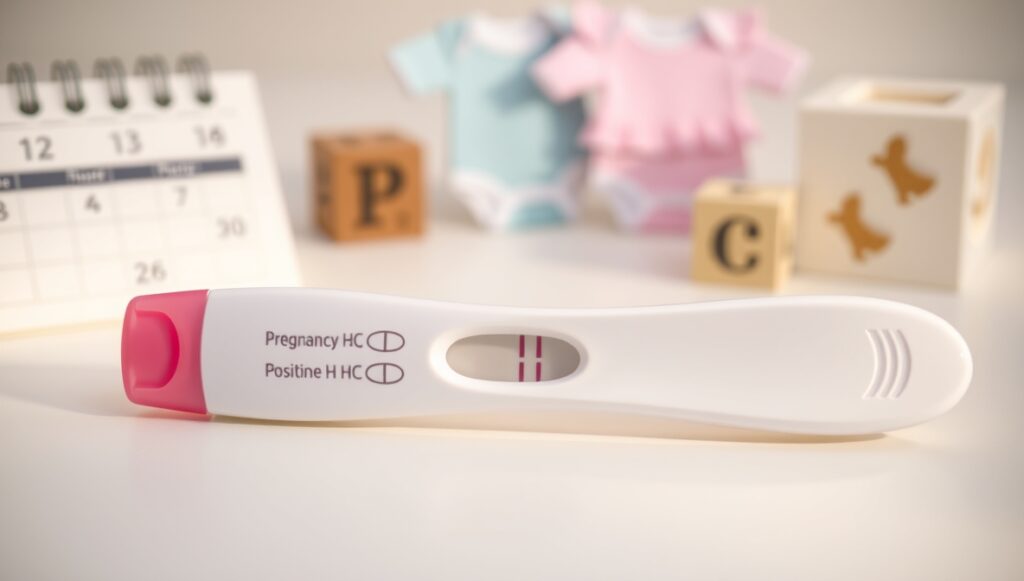Pregnancy Test Positive results can bring a mix of emotions, from excitement to worry. If you see a pregnancy test positive, it means that your body is producing the hormone hCG, which usually indicates pregnancy. Understanding what a pregnancy test positive result truly means can help you take the right next steps for your health and your future. Many women feel confused when they get a pregnancy test positive, especially if the test was taken early or if their symptoms are mild. It is important to know that a pregnancy test positive is just the first step, and confirming your pregnancy with a doctor is always recommended.
A pregnancy test positive result can also raise questions about accuracy and timing. Home pregnancy tests are very sensitive, but they can sometimes give false positives or false negatives depending on when you take the test and how you follow the instructions. If you see a pregnancy test positive, you should take a second test a few days later to confirm, and then schedule an appointment with your healthcare provider. This ensures you get accurate results and early prenatal care if the pregnancy is confirmed. Remember, a pregnancy test positive is just the beginning of an important journey, and knowing what to expect can make the process less stressful and more manageable.
Understanding a Pregnancy Test Positive Result
A pregnancy test positive result shows that your body is producing the hormone hCG. This hormone is made when a fertilized egg attaches to the lining of the uterus. Even though a pregnancy test positive usually means pregnancy, it’s important to confirm it with a healthcare professional. Sometimes, certain medications, medical conditions, or incorrect testing can cause unusual results. That is why seeing a doctor after a pregnancy test positive is highly recommended.
How Early Can a Pregnancy Test Positive Be Detected?
Pregnancy tests can detect hCG levels usually 10 to 14 days after conception. Some very sensitive tests may detect hCG even earlier. If you take a pregnancy test positive too early, there is a small chance the result could be inaccurate. For best results, experts suggest taking the test after you have missed your period. Taking it in the morning, when your urine is most concentrated, can also improve accuracy.
Signs Alongside a Pregnancy Test Positive
After a pregnancy test positive, many women start noticing early pregnancy symptoms. These can include nausea, fatigue, breast tenderness, frequent urination, and mild cramping. However, symptoms vary for everyone, and some women may not feel anything at all in the beginning. Recognizing these signs along with a pregnancy test positive can help you understand your body better.
What to Do After a Pregnancy Test Positive
If your pregnancy test positive is confirmed, the next step is to schedule an appointment with a healthcare provider. They will confirm the pregnancy through a blood test or ultrasound and provide guidance for prenatal care. It’s important to start taking prenatal vitamins, including folic acid, which helps your baby’s development. Avoid alcohol, smoking, and certain medications, as these can harm the baby in early pregnancy.
Pregnancy Test Positive Accuracy: What You Should Know
Home pregnancy tests are very accurate when used correctly, often over 99% reliable. However, factors like testing too early, diluted urine, or expired tests can affect accuracy. If your pregnancy test positive seems unusual, repeating the test after a few days can help. Blood tests at a clinic are even more accurate and can detect pregnancy earlier than urine tests.
False Positives: Why Your Pregnancy Test Positive May Not Always Mean Pregnancy
Sometimes, a pregnancy test positive does not indicate an actual pregnancy. False positives are rare but can happen due to certain medications, medical conditions like ovarian cysts, or chemical pregnancies (when an egg is fertilized but does not implant fully). If you suspect a false positive, consulting a doctor is essential to understand the situation correctly.
Best Time to Take a Pregnancy Test for Accurate Results
For most women, the best time to take a pregnancy test is after a missed period. Testing too early may give unclear results, while testing too late may delay confirmation. Morning urine is usually more concentrated and gives better accuracy. Reading the instructions carefully and waiting the recommended time to check results ensures you understand the pregnancy test positive result properly.
Emotional Reactions to a Pregnancy Test Positive
Seeing a pregnancy test positive can bring many emotions, from joy to worry. Feeling nervous, excited, or even scared is normal. It is important to talk to a partner, family member, or healthcare provider about your feelings. Emotional support during this time can help you cope with the changes in your body and your life.
Conclusion
After a pregnancy test positive, your next steps should include confirming the pregnancy, starting prenatal care, and adjusting your lifestyle for a healthy pregnancy. This may include eating nutritious food, avoiding harmful substances, and planning for doctor visits. Early care is very important for the health of both the mother and the baby.
FAQs
Q1: How soon can I take a pregnancy test after unprotected sex?
A1: Most pregnancy tests are accurate 10–14 days after conception. Testing too early may give unclear results.
Q2: Can medications affect a pregnancy test positive result?
A2: Yes, certain fertility drugs containing hCG may cause a false positive. Always check with a doctor if unsure.
Q3: What should I do if my pregnancy test positive is negative the next day?
A3: Wait a few days and test again. If results are still unclear, see a healthcare provider for a blood test.

